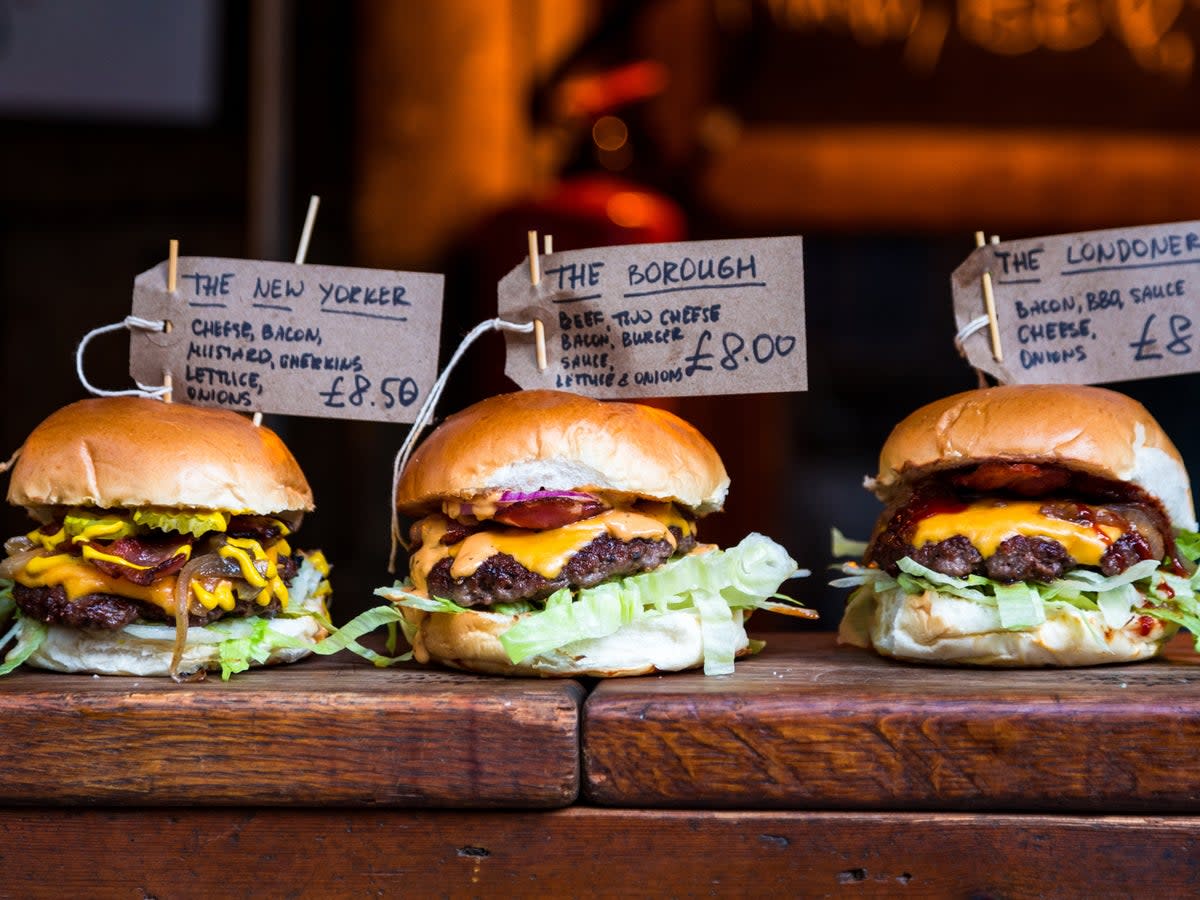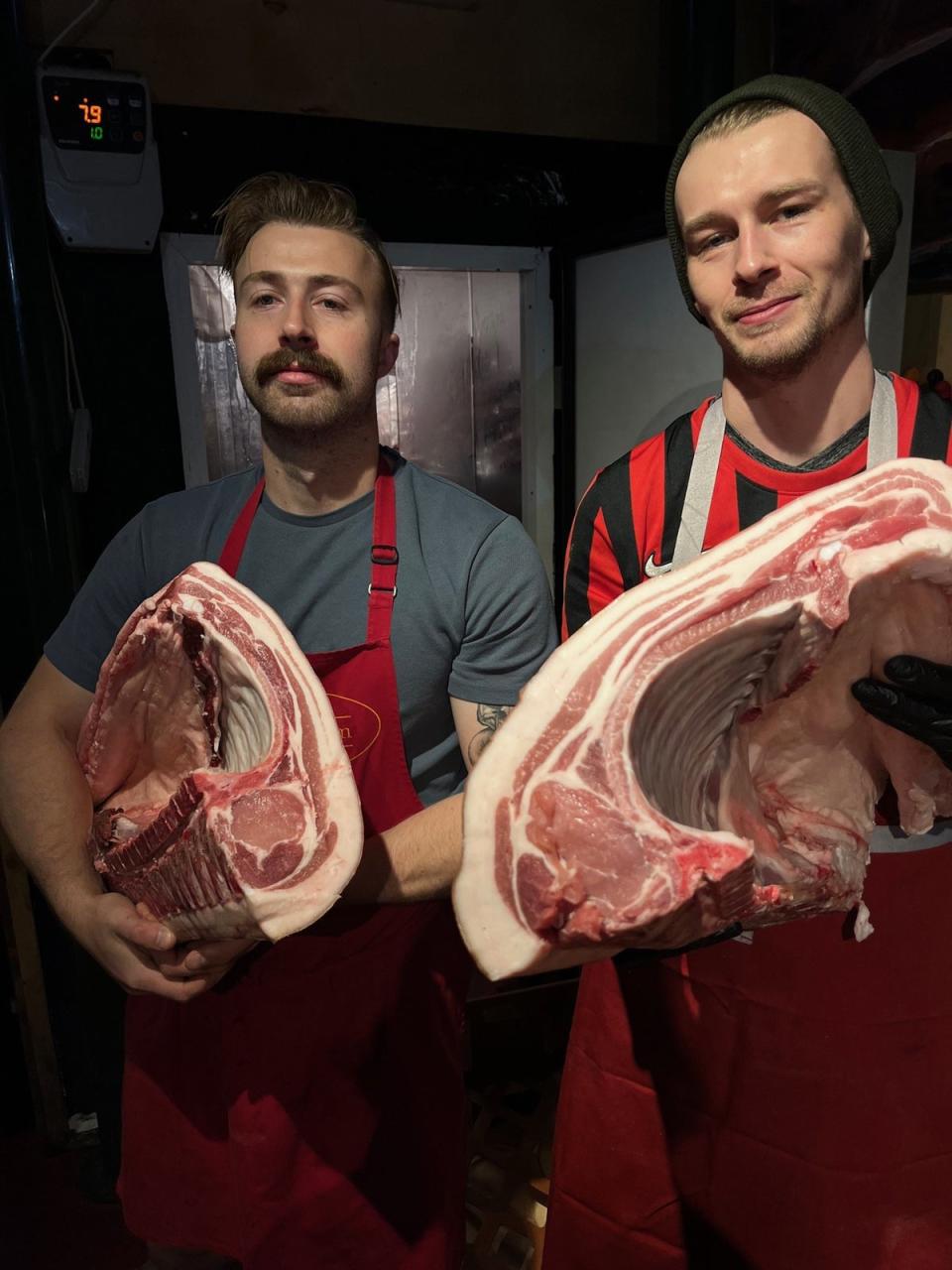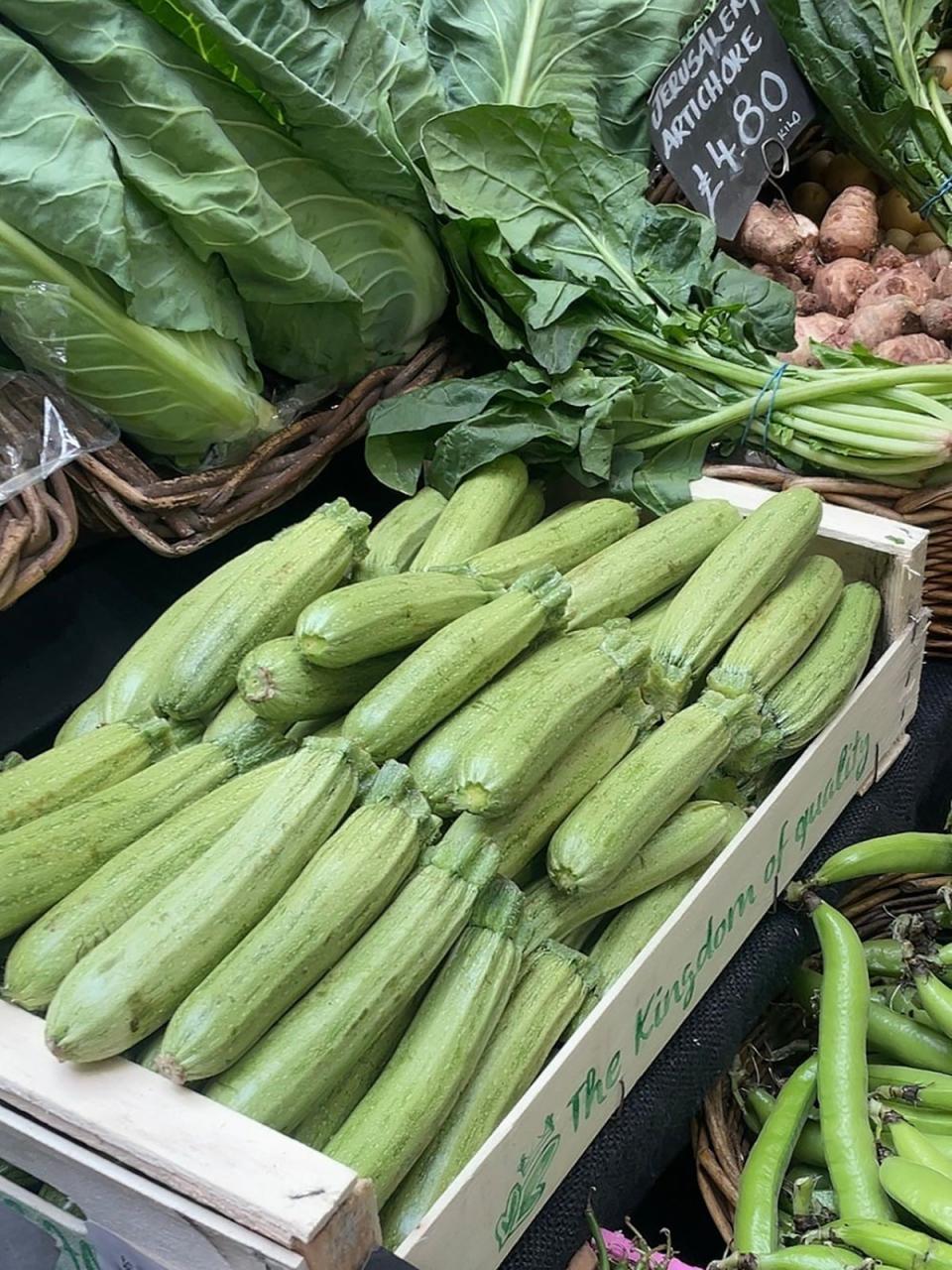How to shop for the best barbecue ingredients

At Borough Market these days you’re rarely more than a few metres from some glowing coals.
Within the tight confines of this historic marketplace, you’ll find a Greek souvla rotisserie at Oma and Agora, a Levantine grill at Arabica, a kamado-style oven at The Black Pig, a Japanese robatayaki grill at Oroshi, a southern Thai grill at Kolae, Sri Lankan clay burners at Rambutan, and plenty more besides.
For many years it was the waves of pungent cheesiness pouring forth from Kapacassein’s melting raclette that provided the defining scent of Borough; now, even that may be superseded by the sweet smoke of lumpwood charcoal.
As this concentration of restaurants and street food stands amply demonstrates, cooking over coals is a truly global phenomenon. For the purposes of simplicity, we tend to bundle this vast array of cuisines under the simple heading of “barbecue”.
In the US, where the word took root, this is a term that carries great cultural and culinary significance, tied to specific dishes and techniques and loaded with the weight of history and identity. But here, in the melting pot of London, it can mean something much looser, from burgers and bangers to Jamaican jerk chicken, from Nigerian beef suya to Korean bulgogi.
Being a bit reductive seems perfectly valid in this case – however diverse the results, barbecues from every corner of the world have a great deal in common. All of them share an appeal that seems deep and elemental. Like moths around a lightbulb, we can’t help but be drawn to the sounds, smells and sights of food being cooked over fire.
Light a barbecue and people gather round it, drinks in hand. Turn on an oven and not a soul will notice. All of them depend on the alchemy of heat and smoke communing with sugars, fats and proteins. A pork souvlaki and a kolae mussel skewer may taste very different, but they both taste amazing for the exact same reasons: the caramelisation, the contrasts of crisp and tender, the subtle infusion of smoke.
Simplicity, too, is a common factor, with most of the world’s best barbecue dishes involving minimal prep. It’s all big lumps of meat, whole fish, vegetables that are hacked into chunks and either speared on a skewer or chucked straight on the grill. Beyond a bit of seasoning, oiling and the smearing of marinades, the bulk of the work is limited to setting up and caring for the fire. Probably the fiddliest bit of a barbecue is making the side salads, and no one eats them anyway.

If you want to produce great barbecue food at home, it’s the simplicity of the cooking that creates the strongest case for buying the ingredients at a food market like Borough. Simplicity demands quality – dropped whole onto a grill, there’s nowhere for substandard produce to hide.
That’s certainly true of meat. For the magic to happen, the meat needs the right density of muscle and the right coverage and consistency of fat, and that only comes from animals that have eaten a varied diet and enjoyed a long, happy, active life. That’s why the likes of Kolae and Oma place such store in their direct relationships with producers of exceptional outdoor-bred, slow-raised meats.
There are also many cuts of meat that are uniquely suited to cooking over coals but unlikely to grace the fridge section of a supermarket. If you want a brisket, a picanha steak, some pig’s cheeks or a venison loin (and trust me, you do), you’re almost certainly going to need to visit a proper butcher like Borough’s Northfield Farm.
But if all you want on your barbecue is some humble British burgers or sausages, even those benefit immensely from being made and sold by people who actually care. Tim Wilson, the founder of the Ginger Pig butchery, can talk about the art of sausage making with a reverence more suited to the building of Gothic cathedrals than the squeezing of meat into innards – and he’s right to do so.
The importance of quality is, if anything, even more germane to fish. Cooking fish directly over charcoal is simple, highly rewarding, but fraught with danger. Fish can be delicate creatures, and on a metal grid the risk of your lunch sticking to the bars or collapsing through the gaps is ever present. The grill needs to be clean and the barbecue hot – properly hot. The fish need to be whole and well-oiled (or big, firm, meaty fillets, equally well-oiled). But, most importantly, they need to be as fresh as can be. The older the fish, the less likely it is to withstand the rigours of a fire. You need fish with clear eyes, bright scales and a smell of the sea rather than the noxious whiff of wood glue, and that means finding a fishmonger with a short, efficient supply chain and a commitment to freshness.

The great news is that British waters in the summertime are teeming with fish that seem made for the barbecue: robust, oily mackerel; red mullet, the prettiest of all the edible sea creatures; later in the summer, silvery Cornish sardines. Flat fish such as turbot or brill can be magnificent over the coals, although you’ll probably need a grill cage to do them justice.
Among Borough’s great treasures are the hand-dived scallops plucked from West Country seabeds by Darren Brown of Shellseekers Fish and Game, which can be cooked in their half-shells in a bubbling pool of butter, creating a dish of transcendent beauty in about five minutes. And you don’t even need plates.
Seasonal veg should never be an afterthought. Think aubergines and courgettes. Summer cabbages. A halved gem lettuce. All of them oiled, seasoned and thrown on the grill. In fact, you don’t even need the grill – there are few cooking methods more satisfyingly prehistoric than dropping aubergines or peppers straight onto the coals to blister and crumple, ready to be mashed into baba ghanoush or muhammara.
While fresh produce always has to be the star of the fire-cooking show, other Borough stalls can provide the supporting cast. For some Thai-inspired marinades, a visit to the Raya southeast Asian grocery is a must. For authentic Jamaican jerk seasoning, a visit to Dawn Smith’s Pimento Hill. For barbecue spice blends from every corner of the world, from South Korea to South Carolina, a browse of the shelves of Spice Mountain.
To adhere all those flavours, you’ll need oils or dairy fats (James Walters from Arabica, who knows his way around a charcoal grill, suggests yoghurt or buttermilk for sticking spicy marinades to meat as, unlike oil, it won’t drip into the fire and cause a rapid and unwelcome cremation).
And you’ll definitely need some chilli sauces – Grenadian pepper sauce from De La Grenade, Venezuelan salsas from La Pepia, or the delicious little hand grenades of capsaicin brought up from Wiltshire Chilli Farm.
Take some of that little lot to your garden, ignite the coals, let the smoke catch on the wind, and watch everyone around shuffle over, drinks in hand, mouths watering. Moths around a lightbulb.
Mark Riddaway is the author of ‘Borough Market: Edible Histories’


